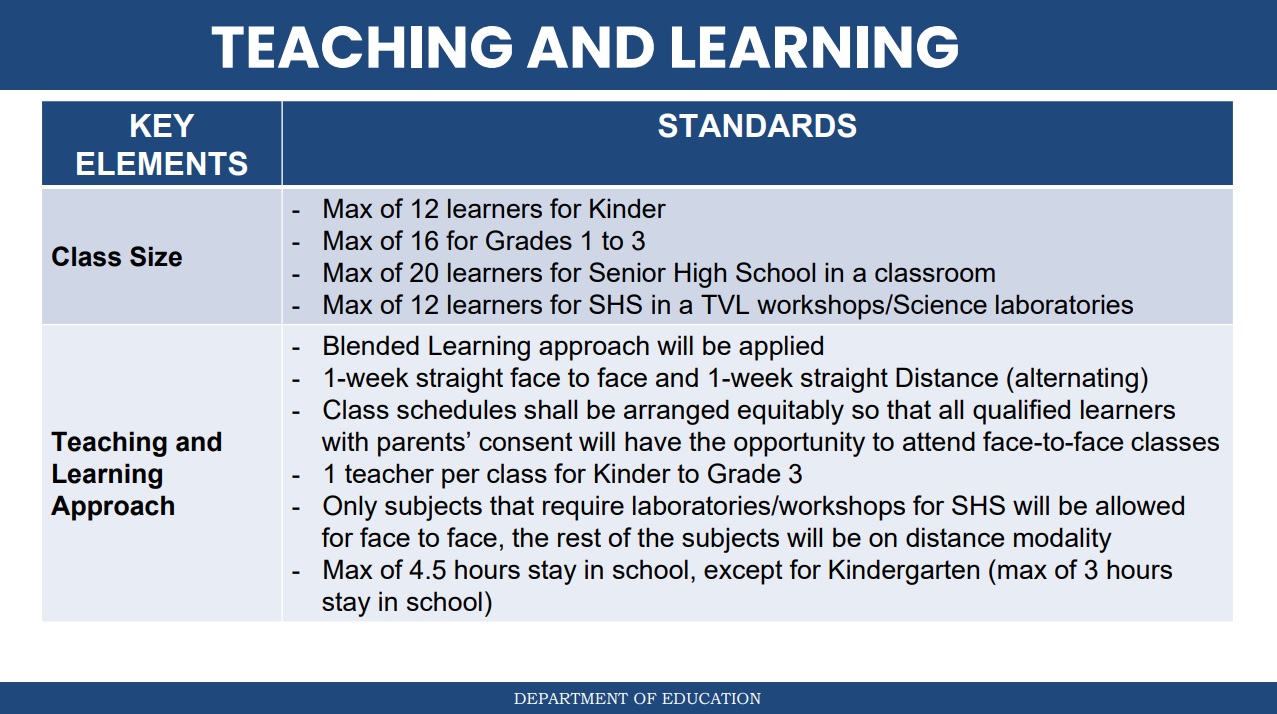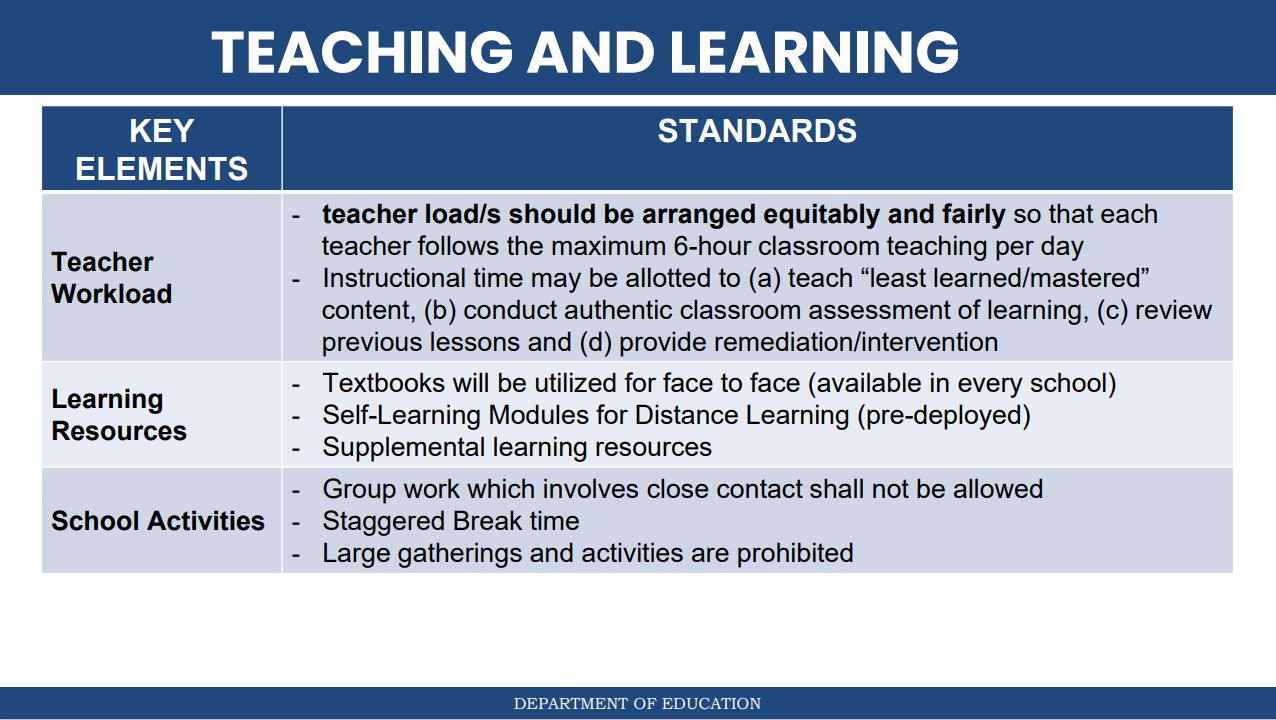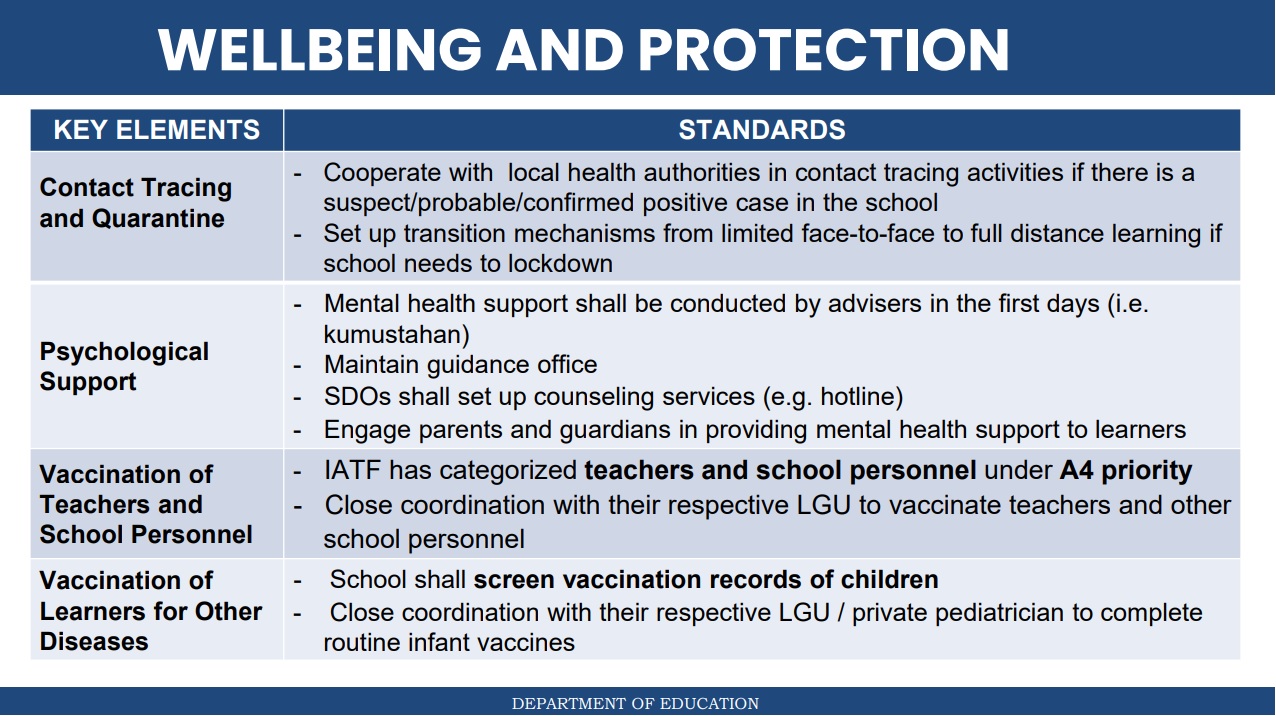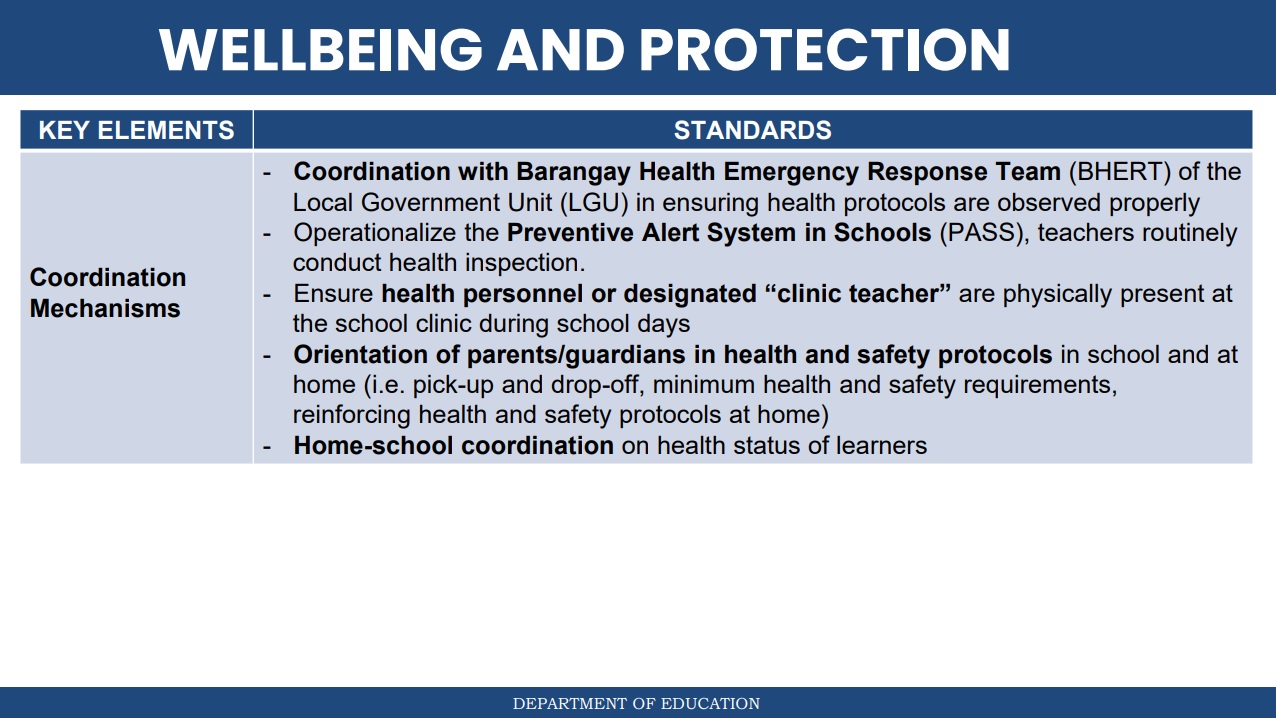DepEd, DOH sign joint circular on pilot face-to-face classes
MANILA – The Department of Education (DepEd) and the Department of Health (DOH) on Monday signed a joint memorandum circular outlining the guidelines for the pilot implementation of face-to-face classes for basic education in areas identified as "low risk" for the coronavirus.
During the virtual ceremonial signing, Education Secretary Leonor Briones said the two departments worked together in crafting the operational guidelines of limited face-to-face classes to safely reopen schools amid the pandemic.
“Our utmost priority is the health and safety of our learners and teachers while ensuring that learning happens and learning gaps are addressed. We have been proactive in planning for safe return to schools,” Briones said.

The DepEd also consulted with various stakeholders -- child health experts, local government units (LGUs) and learners’ families.
The pilot implementation, a combination of physical classes and distance learning, is applicable for the schools that passed the two departments' strict vetting process and have the support of their respective LGUs, Briones said.
DepEd Director for Planning Service Roger Masapol said the pilot implementation would be done among a maximum of 120 schools across the country, prioritizing Key Stage 1 learners (Kinder to Grade 3), after passing the School Readiness Assessment by DepEd and their local governments.
“Face-to-face classes, even in limited form, can mitigate the challenges of distance learning. It can address the needs of learners with no adult in the family qualified to perform the role of learning facilitator and ease the negative mental health and child development impact of the lack of face-to-face interaction and socialization among learners,” Masapol said.


Briones noted that the guidelines implement the Prevent, Detect, Isolate, Treat, and Reintegrate framework highlighting the importance of the availability of water, sanitation and hygiene facilities, proper ventilation in classrooms, ensuring that classroom layouts enable physical distancing between persons, prioritization of students who will benefit most from limited face-to-face learning modality, management of foot traffic and conduct of simulation activities before implementation of the pilot.
"DepEd also drafted a contingency plan with recommended actions for different scenarios. The scenarios range from where there is a suspected case presenting symptoms, to a scenario where there is a resurgence of Covid-19 cases in multiple barangays and this sets the policy on when schools should impose a lockdown," Briones said.


Meantime, Health Secretary Francisco Duque III said the department committed to providing additional protection for the teachers through vaccination.
"While vaccination is not mandatory, classroom learning will be limited to vaccinated teaching personnel. So as not to disenfranchise unvaccinated teachers, they may teach using distance or online modules. This also presents options for parents who are still hesitant to send their children to school,” he added.
World Health Organization Representative to the Philippines Dr. Rabindra Abeyasinghe lauded the Philippine government's decision to approve the pilot run of limited in-person schooling in low-risk areas and assured that it would continue to support the government in the pilot implementation of in-person classes.
"Deciding to open schools must be guided by risk-based approach, taking into consideration the epidemiology of Covid-19 transmission at the local level and the capacity of educational systems to adapt to operate safely," Abeyasinghe said. (PNA)
News Feed:
https://www.pna.gov.ph/articles/1154780
Latest News | Philippine News Agency